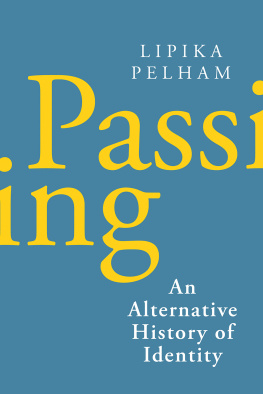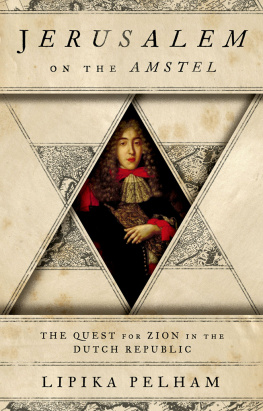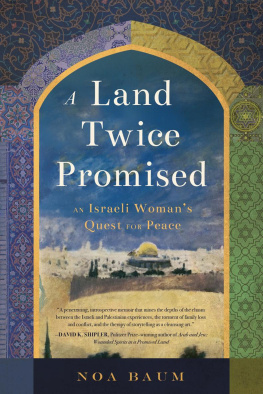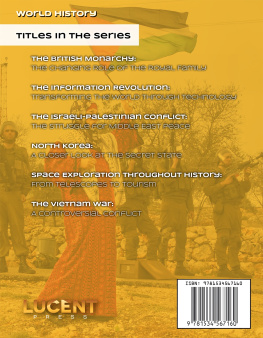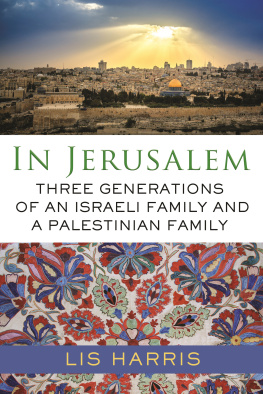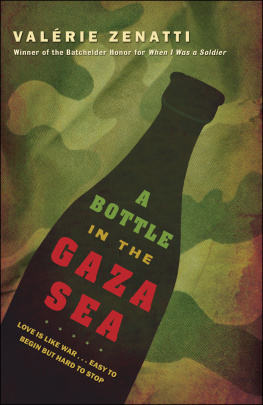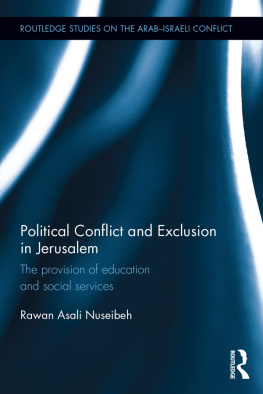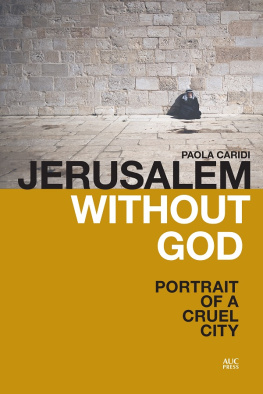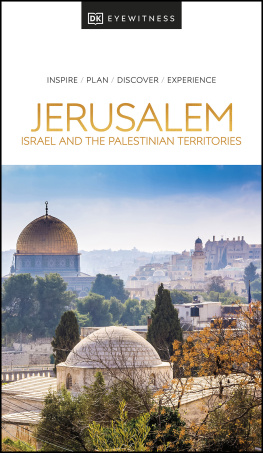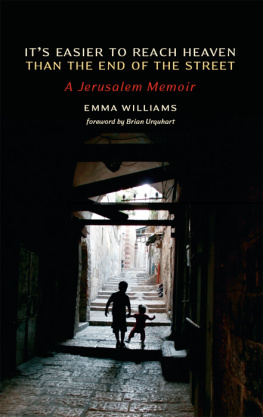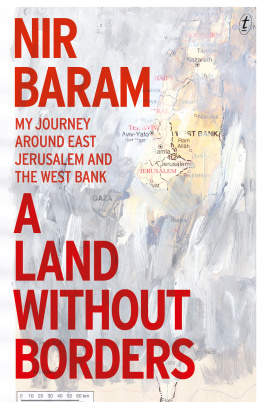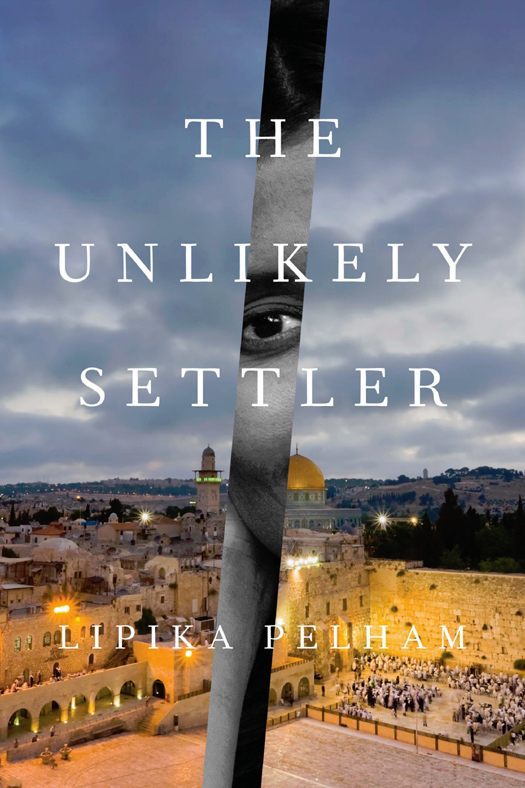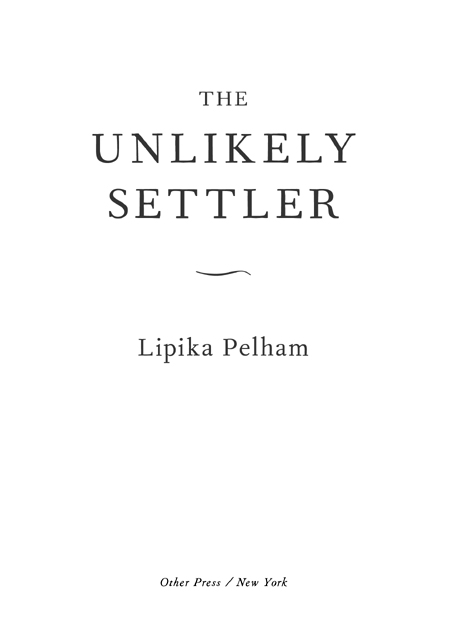Copyright 2013 Lipika Pelham
Poems on from Anthology of Modern Palestinian Literature, edited by Salma Khadra Jayyusi, translated by Lena Jayyusi and W. S. Merwin. Copyright 1992, Columbia University Press. Reprinted with permission of the publisher.
Production Editor: Yvonne E. Crdenas
Book design: Jennifer Daddio/Bookmark Design & Media, Inc.
All rights reserved. No part of this publication may be reproduced or transmitted in any form or by any means, electronic or mechanical, including photocopying, recording, or by any information storage and retrieval system, without written permission from Other Press LLC, except in the case of brief quotations in reviews for inclusion in a magazine, newspaper, or broadcast. For information write to Other Press LLC, 2 Park Avenue, 24th Floor, New York, NY 10016. Or visit our Web site: www.otherpress.com
The Library of Congress has cataloged the printed edition as follows:
Pelham, Lipika.
The unlikely settler / Lipika Pelham.
pages cm
ISBN 978-1-59051-683-6 (hardback) ISBN 978-1-59051-684-3 (e-book) 1. Pelham, Lipika. 2. Women motion picture producers and directorsIsraelBiography. 3. Women, East IndianBiography. 4. Interfaith marriagePersonal narratives. 5. Interracial marriagePersonal narratives. 6. Arab-Israeli conflict, 1993Personal narratives. 7. JerusalemEthnic relationsPersonal narratives. I. Title.
PN1998.3.P446.A3 2014
828.9203dc23
[B]
2013026641
v3.1_r1
For my father
Contents
Many things have happened in Jerusalem. The city has been destroyed, rebuilt, destroyed, and rebuilt again. Conqueror after conqueror has come, ruled for a while, left behind a few walls and towers, some cracks in the stone, a handful of potsherds and documents, and disappeared. Vanished like the morning mist down the hilly slopes. Jerusalem is an old nymphomaniac who squeezes lover after lover to death before shrugging him off with a yawn, a black widow who devours her mates while they are still penetrating her.
AMOS OZ, A TALE OF LOVE AND DARKNESS
AUTHORS NOTE
This book is a memoir of my life in the Middle East and a depiction of the real-life events and places around me. In some places I have taken creative license or have embellished, dramatized, or added or removed elements from certain incidents and circumstances for the purposes of flow, effect, or efficiency of storytelling or economy of language. In particular, a number of the stories in this book involving my husband, Leo, and various statements depicting his views and conduct or other personal information regarding him, are products of my imagination and are not intended to be considered literally true.
PROLOGUE
During our fifth year in Jerusalem, I was faced with a dilemma: where to give birth to our third child. In London, where our two older children were born and where my husband wanted me to go? In Bethlehem, because our friends recommended the Holy Family Hospital there? Or in Jerusalem, where I had met a Jewish Orthodox obstetrician I really liked?
I tried not to rule out Bethlehem. Many of our expatriate friendsjournalists and diplomatswent to Palestinian cities to deliver their babies to avoid probable future difficulties for their work life in the Middle East. I went to see the hospital in Bethlehem. It had a beautiful setting amid lovely gardens, and a state-of-the-art neonatal unit. The delivery rooms were spacious and airy with a view of the primordial hills. But it sounded so clichd. Born in Bethlehem. Implicated in too much compassion and sacrifice. A birth loaded with expectations. Given that Bethlehem had one of the highest birthrates in Palestine, the land should have been inundated by now with hundreds of thousands of compassionate apostles. If only forgiveness had been the core value of this place, peace would have flourished in the hills around Jesuss birthplace, rather than outposts of hate. I could not help my eye being drawn to the ugly architecture of the Israeli settlements that dotted the landscape around Bethlehem. It was too ominous a place to give birth.
I carried on seeing my doctor, who traveled from his home in a Jewish settlement in the West Bank to his practice in Jerusalems ultra-Orthodox neighborhood of Mea Shearim.
How can you compromise your politics by seeing a settler doctor? Dont you think you are implicitly supporting the Israeli occupation? said Leo, my husband, an expert on Middle Eastern affairs.
Its up to the mother of the baby to decide where she feels comfortable to give birth, I replied.
He would stare at me speechless in disbelief. Leo worked for a think tank involved in conflict resolution in the Middle East and spent sleepless nights going through possible difficult scenarios at Syrian passport control. He feared that a passport with the place of birth listed as Jerusalem would have an impact on traveling with our baby to the Arab world.
My own origins were of no help. I was born in Bengal with a mlange of religions that would only complicate our case with the Syrian Mukhabarat, the secret police. I grew up with my grandmothers strong cultural Hinduism, challenged by my fathers Islam. My preference for my ancestral pagan faith above my fathers monotheism would definitely not go down well with an Islamic nation.
I got to know my Orthodox doctor not long after I first came to Jerusalem. I was doing some journalism for the BBC and was asked by Womans Hour to make a feature on his research into the so-called halakhic infertility. Ultra-Orthodox Jewish women often failed to conceive naturally due to the strict regime of ritual purity, or niddah, decreed by a rabbinical commandment. For two weeks of every month, from the first day of menstruation, sex is forbidden between couples. (Although I had come across alternative mitzvah whereby a particular rabbi had shown some degrees of leniency toward young men visiting prostitutes while their wives were in niddah.) This resulted in many women missing the small window of ovulation. My doctor denounced this practice, endorsed by halakha, or Talmudic law, which deprived healthy women from getting pregnant. Many were put on ovulation drugs that sometimes led to serious heart problems and hypertension. He demanded that the law on the purity of the female body be revised, which was hugely controversial in a country where its rabbinical courts defined the laws of marriage and divorce. His views held much deeper implications than those of the secular doctors, as he himself was religious. He was popular and well regarded in his profession, which showed in the number of ultra-Orthodox women in his waiting room. It was courageous of these women to attend his practice in a culture where a handshake or even innocent eye contact was not permitted between the opposite sexes (with some ultra-Orthodox men campaigning for separate pavements for men and women). It was unusual for Orthodox women to visit male doctors.
When I found out that I was pregnant, the obstetrician whose name came to my mind was this doctor who, since my Womans Hour feature, had written a book that was being serialized in one of the main national papers. I felt comfortable having a doctor I already knew. And, although I would never admit it to Leo, the thought of upsetting the Syrian and other closed Arab regimes with a child born in Jerusalem filled me with a perverse pleasure, due to my own complicated relationship with and rejection of Islam in my childhood. I felt that since it was my prerogative to criticize Israels colonial policy along with the majority of the world, it was also my right not to comply with the infantile demand of certain despotic Arab countries to determine what I should wear, whom I could talk to, or where I should give birth to my baby.


